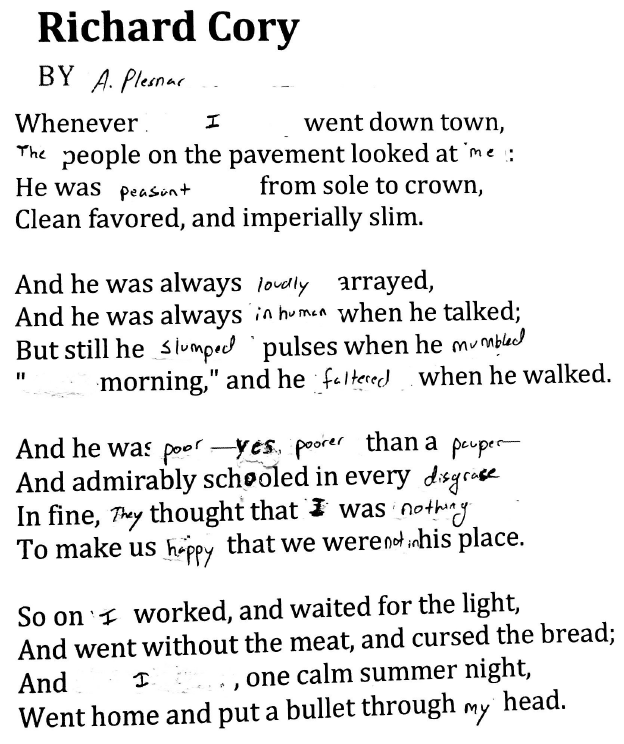In many cases, experience outweighs classroom learning or lecture when it
comes to education. Simply being told something does not mean that an
individual will understand a concept. Only through encounters can some truly learn an idea. Rankine uses this as a device in her writings. She does not merely invite the reader to experience her experiences; she forces those willing to experience it. In her work, Claudia Rankine’s repeated use of the pronoun “you”makes the reader the subject of her work.
While reading this part of
Citizen I used a Marxist critical lens
to better understand the social hierarchy Rankine works to dismantle.
During her poem, Rankine hails her audience by saying, “Hey you—” (140). By hailing her readers directly, Rankine “[I]nterpellates individuals as subjects” (Althusser 119). Interpellates means to give an identity to something. By calling out to her reader, Rankine uses her power as the author of this book to make the reader the subject of the poem and helps her audience understand her position by switching the roles of the narrative. I believe that this gives a new meaning to the following excerpt:
You are you even before you
grow into understanding you
are not anyone, worthless,
not worth you. (139)
This excerpt helps the reader understand the deep-rooted, sometimes subconscious institution of racism in America. Rankine invites the reader to imagine being seen as worthless in the eyes of a society before the reader is even born. In this way, Rankine makes her argument by forgoing the writing convention showing, not telling by having the reader experience first-hand what she argues.
Rankine employs this strategy again when she says, “what happens to you doesn’t belong to you, only half concerns you” (141). The audience experiences Rankine’s experience of not owning her life. This idea of ownership stems back to the middle passage when Africans were brought to the Americas as slaves. Their experiences, their home, and their autonomy ripped away from them so that they held no ownership over their life. Rankine needs her audience to not only be aware of this fact but live it. Only through this experience can someone truly understand the pain, the injustice, and the inequality of the situation. And, the moment you question this ideology and this institution, “you are pulled back into the body of you receiving” (141). Rankine makes clear that the current system condemns the questioning of itself and has measure to defend itself from someone dismantling it: having them pulled back and become a receiver again.
Rankine shows the ridicule people experience when showing any autonomy. The persona of the poem takes on an authoritative tone in the following excerpt:
Who do you think you are, saying I to me?
You nothing.
You nobody.
You. (142)
The pronoun “I” holds a special place in the English grammar: the only
pronoun capitalized in any point during a sentence. It also holds the place as the subject of a sentence (me being in the objective case.) The word “you,” on the other hand, remains the same in the subjective case or objective cases. The persona ridicules the audience for assuming they have any power in this society, they have the right to individuality and they have the freedom to define themselves. Instead, the persona of the poem flips it on audience and tells them where they stand in the social hierarchy.
Rankine experienced all the problems she has her audience live, and she
realizes that silence and tolerance only perpetuates the problem. She recognizes that her audience needs to experience this social injustice in order for them to see that it exists. This shared experience will be used as a first step in dismantling a society that promotes and institutionalizes racism. The first step starts with the individual experience and blossoms from there.
Thank you all for reading my ramblings! Here are a couple of questions I’m
hoping to get your opinion on:
1.
Does Rankine use any other elements in this poem or in
the story to make the reader the subject of the story other than using the pronoun
“you”?
2.
Do you think the subject of the story is not the reader
(“you”)? If so, who is it?
3.
How do you think the final images of the story contribute
to how Rankine includes the reader in her text?

